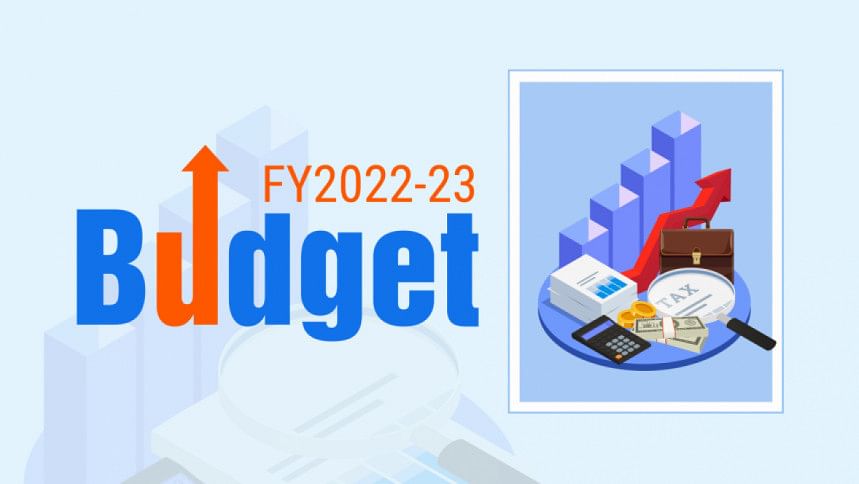Govt turning to all partners for budget support

The government is expecting $2.5-3 billion by June next year from multilateral lenders other than the International Monetary Fund to help the Bangladesh economy weather the storm caused by the Ukraine war.
The estimate was made by the Economic Relations Division, which manages foreign debt repayment activities, in the last week of June -- before Finance Minister AHM Mustafa Kamal wrote to the IMF for a support package, expected to be about $4.5 billion.
Of the $2.5-3 billion, about $1 billion is expected from the Asian Development Bank.
Earlier this week, the government opened talks with the Manila-based multilateral lender for the fresh loan, The Daily Star has learnt from officials involved with the proceedings.
The loan, which was officially sought towards the end of June, would come as a balance of payment and budget support as well as for mitigating the effects of climate change on Bangladesh.
As per the discussions so far, Bangladesh would be asked to introduce a carbon tax, bring down its use of polythene and implement measures to increase the government's revenue.
The carbon tax is a fee levied on firms that produce carbon dioxide through their operations, which many economists argue is the most efficient way to tackle climate change.
Bangladesh is scheduled to receive $250 million in December from the World Bank and is in discussions for another $400-450 million to support the government's green growth agenda.
A fresh $1 billion has been sought from the Washington-based multilateral lender to mitigate the effects of the Ukraine war: a cost of living crisis and a fast-widening current account deficit.
In June, inflation raced to a nine-year high of 7.56 percent amid sharp rises in food prices.
The current account deficit -- which is the shortfall between the money received by selling products to other countries and the money spent to buy goods and services from other nations -- widened more than six times to $17.2 billion in the first 11 months of the fiscal year that ended on June 30.
"The loan conditions that we are expecting from the WB would not be hard to implement as many of the measures are already mentioned in the budget," said a finance ministry official involved with the proceedings on the condition of anonymity due to the sensitivity of the matter.
The government would soon be writing to the Beijing-based Asian Infrastructure Investment Bank and Japan International Cooperation Agency asking for financial assistance, he said.
"We are taking a similar approach to the Ukraine war as the one deployed during the global coronavirus pandemic."
To bounce back from the pandemic, as of October 2021, Bangladesh received about $3 billion in budget support from development partners, $732 million from the IMF as balance of payment support and $1.4 billion to implement the countrywide vaccination programme, according to ERD.
"This time, we have new pressure points by way of inflated import bills and inflation. That is why we are looking for budget support from global donors alongside the austerity measures already in place."
Budget support would be reflected in the country's balance of payment and shore up the country's delicate foreign currency reserves, which stood at $39.5 billion as of July 27.
It would also help the government extend cash assistance to the poor and the vulnerable to cushion them from the impacts of inflation, the finance ministry official added.
Experts welcomed the government's proactive steps.
"This is necessary -- we do need to add a few billion dollars to our reserves," said Zahid Hussain, a former lead economist of the WB's Dhaka office.
He went on to advise the government to follow through on its loan request to the IMF with urgency.
"If the IMF is on board, everyone will feel a sense of comfort. This would have a domino effect. It would become easy for the WB, ADB and others -- they would fast-track the loan approval process."
Even when applying for loans from the WB, the IMF's position is sought, according to Hussain.
"So if an IMF programme is ongoing, it would mean there is supervision on macroeconomic stability. This gives confidence to everyone."
Besides, the multilateral lenders' conditions would be complementary to one another, he said.
The IMF might be focusing on one set of issues and the WB on another set.
For instance, the WB might go for tariff rationalisation, while the ADB would be focusing on carbon taxes and other environmental issues.
"It has been a while since we saw transformative institutional and policy reforms -- those will get impetus under the loan programmes. We will see multi-pronged reform programmes like in the 90s. It will be a game-changer for the Bangladesh economy," Hussain added.

 For all latest news, follow The Daily Star's Google News channel.
For all latest news, follow The Daily Star's Google News channel. 








Comments